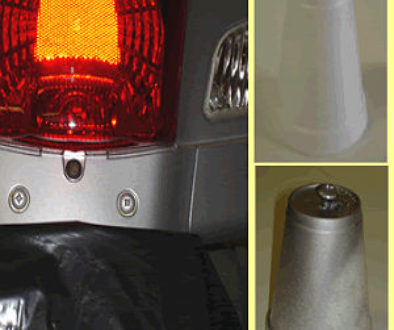Is It Possible for People to Change? How Changing Your Habits Can Transform Your Life

Yes, it is possible for people to change. Change can occur in various aspects of life, including behavior, mindset, habits, and even personality traits. However, change often requires a combination of self-awareness, willingness, effort, and sometimes external support. Here are some key factors that contribute to the possibility of change:
- Self-Awareness: Recognizing the need for change is the first step. Without awareness of the behaviors or traits that need adjustment, change is unlikely to happen.
- Motivation: A strong motivation, whether it’s personal growth, improving relationships, or achieving specific goals, can drive the desire to change.
- Support Systems: Support from friends, family, therapists, or support groups can provide encouragement, accountability, and guidance through the process of change.
- Consistency and Effort: Change often requires consistent effort and practice. It’s about forming new habits and letting go of old ones, which takes time.
- Openness to Learning: Being open to new ideas, feedback, and learning from mistakes is crucial for personal growth and change.
- Environment: Sometimes, a change in environment or circumstances can facilitate personal change by removing triggers or providing new opportunities for growth.
- Resilience: Change can be challenging, and setbacks are common. Resilience helps individuals stay committed to their goals even when progress feels slow.
While change is possible, it’s not always easy, and it doesn’t happen overnight. It’s a process that requires patience and persistence, but with the right mindset and support, people can make meaningful changes in their lives.
Why Start with Habits?
If you want to change, start by changing your habits, because habits are the building blocks of your daily life. They shape your actions, and in turn, your actions define who you are and what you achieve. Whether you’re aiming to improve your health, boost your productivity, or become a better version of yourself, focusing on habit change is a powerful and effective strategy. Habits are automatic behaviors that we perform without much thought, saving mental energy for more complex decisions. By intentionally shaping your habits, you can set yourself up for success, almost on autopilot.
Small changes in habits can lead to big impacts over time. A seemingly minor adjustment, like committing to ten minutes of exercise daily, can accumulate into significant health benefits over the months and years. This concept, often referred to as the compounding effect of habits, highlights that consistent, small improvements can lead to substantial transformations. Moreover, your habits are closely tied to your identity. When you consistently practice habits that align with your goals, you begin to see yourself differently. For instance, reading a few pages each day can gradually transform you into someone who identifies as a “reader,” while choosing nutritious foods regularly can help you see yourself as a “healthy person.” Over time, these habits reinforce a positive self-image and foster continued growth.
Changing your habits also involves breaking the cycle of negative behaviors. This requires understanding what triggers these bad habits, identifying the rewards they provide, and finding healthier alternatives. For example, if you tend to snack on junk food when stressed, you could replace that habit with a short walk or another stress-relief method. The key is to recognize the underlying needs that your habits are meeting and address them in a more constructive way.
How to Change Your Habits
To successfully change your habits, it’s important to start small. Tackle manageable, specific changes rather than trying to overhaul your entire routine at once. For example, if your goal is to improve your health, begin with something simple, like drinking a glass of water every morning, instead of attempting a complete dietary overhaul immediately. Using triggers or cues can also be helpful in forming new habits. By linking a new habit to an existing part of your routine—such as doing a brief exercise after brushing your teeth—you create a consistent reminder to perform the behavior. Pairing new habits with immediate rewards can reinforce them and make them more likely to stick. Even small rewards, like a moment of relaxation or a sense of accomplishment, can serve as powerful motivators.
Patience and consistency are crucial in this process, as research suggests that forming a new habit can take anywhere from 18 to 254 days, with an average of about 66 days. It’s important to remain steady in your efforts, knowing that occasional setbacks are normal and won’t derail your progress. Regular reflection on your habits and willingness to make adjustments are also essential. If a habit isn’t sticking, it may be too ambitious or not well-suited to your routine. Don’t hesitate to tweak your approach until you find what works best for you.
By focusing on changing your habits, you create a sustainable pathway for personal growth and transformation. It’s not about making drastic changes overnight but rather about consistent, deliberate improvements that accumulate over time. Remember, the journey of change begins with the small, everyday actions that ultimately define who you are and the direction you’re headed.
Embrace the Power of Habit Change
By focusing on changing your habits, you create a sustainable pathway for personal growth and transformation. Habits serve as the foundation of your daily life, and by intentionally crafting them, you can drive long-lasting change. It’s not about overhauling your life overnight, but rather about making consistent, deliberate improvements that accumulate over time. Remember, change starts with the small, everyday actions that ultimately define who you are and where you’re headed.
In a Nutshell:
- Habits are Automatic: Habits are behaviors that become automatic over time through repetition. This automaticity allows us to perform actions without conscious effort, saving mental energy for more complex decisions. By intentionally shaping your habits, you can set yourself up for success on autopilot.
- Small Changes, Big Impact: Changing a habit might seem like a small step, but over time, small changes can lead to significant transformations. For example, committing to a daily 10-minute exercise routine might seem minor, but over months and years, it can lead to substantial health improvements. James Clear, in his book Atomic Habits, emphasizes that small, 1% improvements add up over time, creating remarkable results through the power of compounding.
- Habits Define Identity: The habits you maintain influence your identity. If you consistently practice habits that align with your goals, you start to view yourself in a new light—whether it’s becoming a “reader” by reading a few pages every day, or a “healthy person” by choosing nutritious foods. Over time, your habits reinforce a positive self-image and encourage further growth.
- Breaking the Cycle of Bad Habits: If you want to change, you must also address and replace negative habits. Breaking bad habits involves identifying triggers, understanding the reward they provide, and substituting them with healthier alternatives. For instance, if stress leads you to snack on junk food, finding a different stress-relief method, like taking a walk, can help you change the habit loop.
- Start Small: Begin with manageable, specific changes. Instead of trying to overhaul your entire routine, focus on one habit at a time. For instance, if you want to get healthier, start with drinking a glass of water every morning rather than committing to a complex diet overhaul.
- Use Triggers and Cues: Habits are often linked to specific cues or triggers. To build a new habit, identify a reliable cue that will remind you to perform the desired action. For example, you might decide to do ten push-ups immediately after brushing your teeth each morning. The key is to find a cue that fits naturally into your existing routine.
- Reward Yourself: Incorporating a reward immediately after completing the habit reinforces the behavior and makes it more likely to stick. Rewards don’t have to be big; even a small sense of accomplishment or a moment of relaxation can serve as a powerful motivator.
- Be Patient and Consistent: As research shows, it can take anywhere from 18 to 254 days to form a habit, with an average of about 66 days. Consistency is critical—missing a day or two won’t derail your progress, but maintaining a steady effort over time is essential.
- Adjust and Reflect: Regularly reflect on your progress and be willing to make adjustments. If a habit isn’t sticking, it might be too ambitious or not aligned with your natural rhythms. Don’t be afraid to tweak your approach until you find what works for you.

